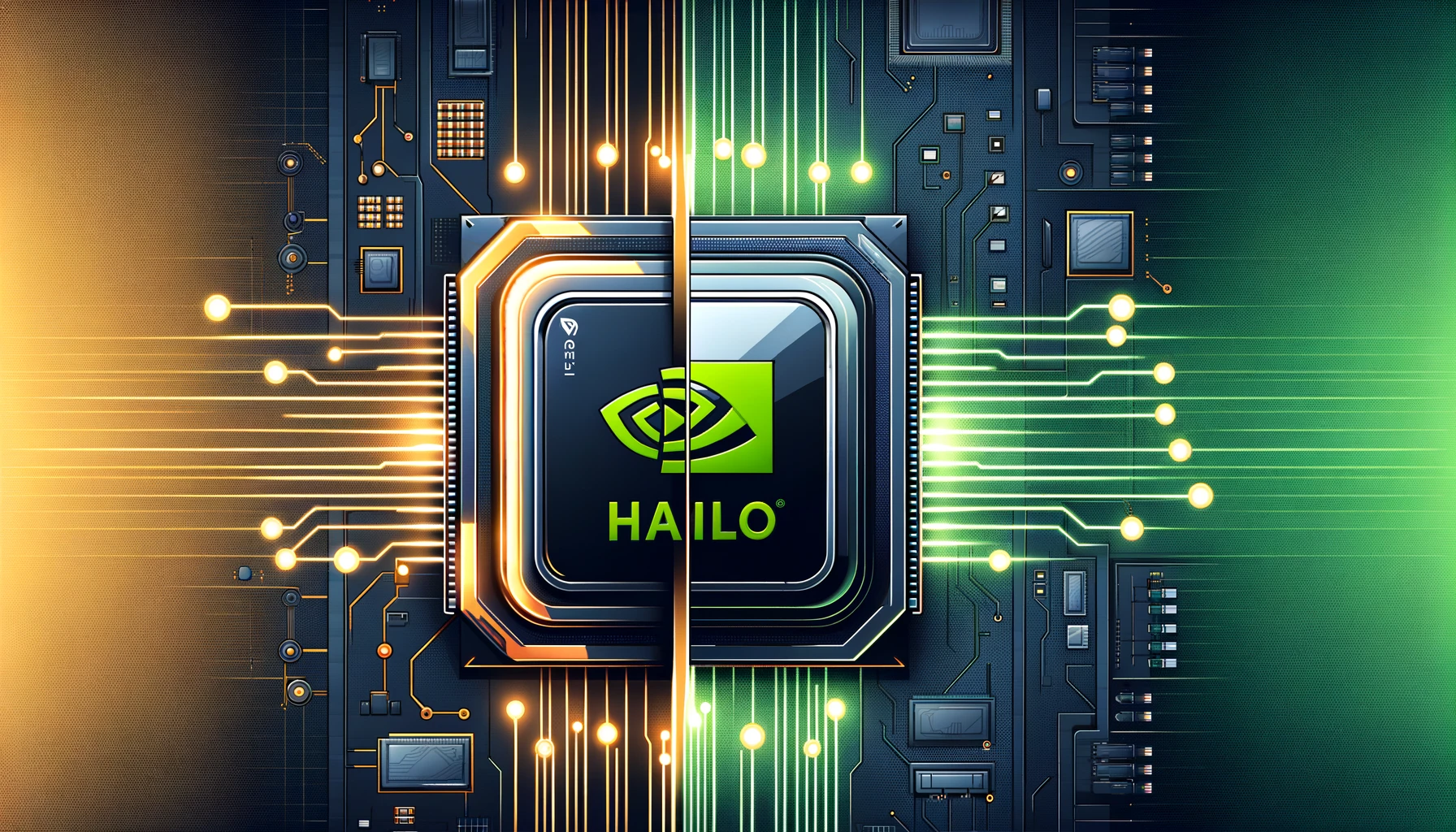
The artificial intelligence (AI) chip sector, once buoyed by an influx of venture capital and investor interest, is encountering a notable shift in its funding landscape. The dominance of industry behemoths such as Nvidia has cast a long shadow over startups in this space, leading to a significant downturn in investment. Recent data paints a stark contrast to previous years’ booming support, with U.S. chip firms securing a mere $881 million from January to September 2023, a sharp decline from the $1.79 billion amassed in the corresponding timeframe of 2022. This downturn in funding has had tangible repercussions for AI chip startups, with companies like Mythic facing financial difficulties and Graphcore battling increasing losses.
Despite the challenging environment, Hailo, a startup co-founded in 2017 by Orr Danon and Avi Baum, former CTO for wireless connectivity at Texas Instruments, has emerged as a beacon of success. Hailo specializes in designing chips that optimize AI workloads on edge devices, offering a solution that promises lower memory usage and power consumption compared to conventional processors. This technology is particularly well-suited for applications in compact, offline, and battery-powered devices, including automobiles, smart cameras, and robotics.
Danon envisions Hailo’s mission as making high-performance AI accessible at scale beyond the confines of data centers. “Our processors facilitate a range of tasks from object detection and semantic segmentation to AI-powered image and video enhancement. Lately, they’ve also been adapted for running large language models (LLMs) on edge devices, encompassing personal computers, infotainment systems, and more,” Danon shared with DMR News.
While many startups struggle to secure even a single significant contract, Hailo boasts over 300 customers across various sectors, including automotive, security, retail, industrial automation, medical devices, and defense. This widespread adoption is a testament to Hailo’s innovative approach and its ability to meet the diverse needs of its clientele.
In a recent show of confidence, Hailo secured $120 million in an extension of its Series C funding, with contributions from notable backers such as Israeli businessman Alfred Akirov, automotive importer Delek Motors, and the VC platform OurCrowd. Danon believes this new capital injection will empower Hailo to capitalize on existing opportunities and lay the groundwork for sustained growth.
The emergence of accelerator chips like those developed by Hailo is viewed as a critical development in the AI sector. Christos Kozyrakis, a Stanford professor of electrical engineering and computer science, remarked on the necessity of such technology as AI applications become more widespread. “The gap in energy efficiency between CPUs and accelerators cannot be overlooked. Accelerators offer efficiency for key tasks like AI, while a processor handles general programmability,” Kozyrakis explained.
However, Kozyrakis also highlighted potential challenges for Hailo, including the evolving nature of AI model architectures and the need for robust software support to encourage widespread adoption of Hailo’s technology. The advantage held by established players like Nvidia in the software domain poses a significant barrier to entry for newcomers.
Despite these hurdles, Hailo remains optimistic about its future. With $340 million in funding and a dedicated team of 250 employees, the company is poised to tackle the challenges of cloud-based AI inference. Traditional AI models often suffer from latency issues and other drawbacks associated with cloud dependency, such as data privacy concerns and scalability limitations. Hailo’s technology addresses these issues by enabling local processing of AI tasks, thereby enhancing real-time insights and reliability.
Danon also sees generative AI as a burgeoning area of opportunity rather than a threat. The demand for edge AI applications is surging across industries, from airport security to food packaging. “The advent of generative AI is further amplifying this demand, with increasing requests to process LLMs locally,” Danon noted, highlighting the broad potential of Hailo’s technology.
As Hailo continues to carve out its niche in the AI chip market, the broader industry landscape remains in flux. The challenges posed by established giants like Nvidia, along with the evolving demands of AI applications, require startups to remain agile and innovative. Hailo’s journey exemplifies the potential for success in this competitive arena, offering valuable insights for other startups navigating the complexities of the AI chip sector.
The company’s focus on edge AI, coupled with its strategic positioning and technological advancements, sets the stage for significant impact in the years to come. As AI continues to permeate various aspects of everyday life, the demand for efficient, localized processing of AI tasks is poised to grow, potentially reshaping the industry landscape and opening new avenues for innovation and growth.
Hailo’s story is not just one of survival but of thriving in a challenging environment. It underscores the importance of vision, adaptability, and the relentless pursuit of innovation in the fast-evolving world of artificial intelligence. As the AI chip industry continues to evolve, Hailo’s journey will undoubtedly serve as a compelling case study for startups and investors alike, highlighting the potential for success amidst the shifting sands of technology and investment.
Related News:
Featured Image courtesy of DALL-E by ChatGPT
